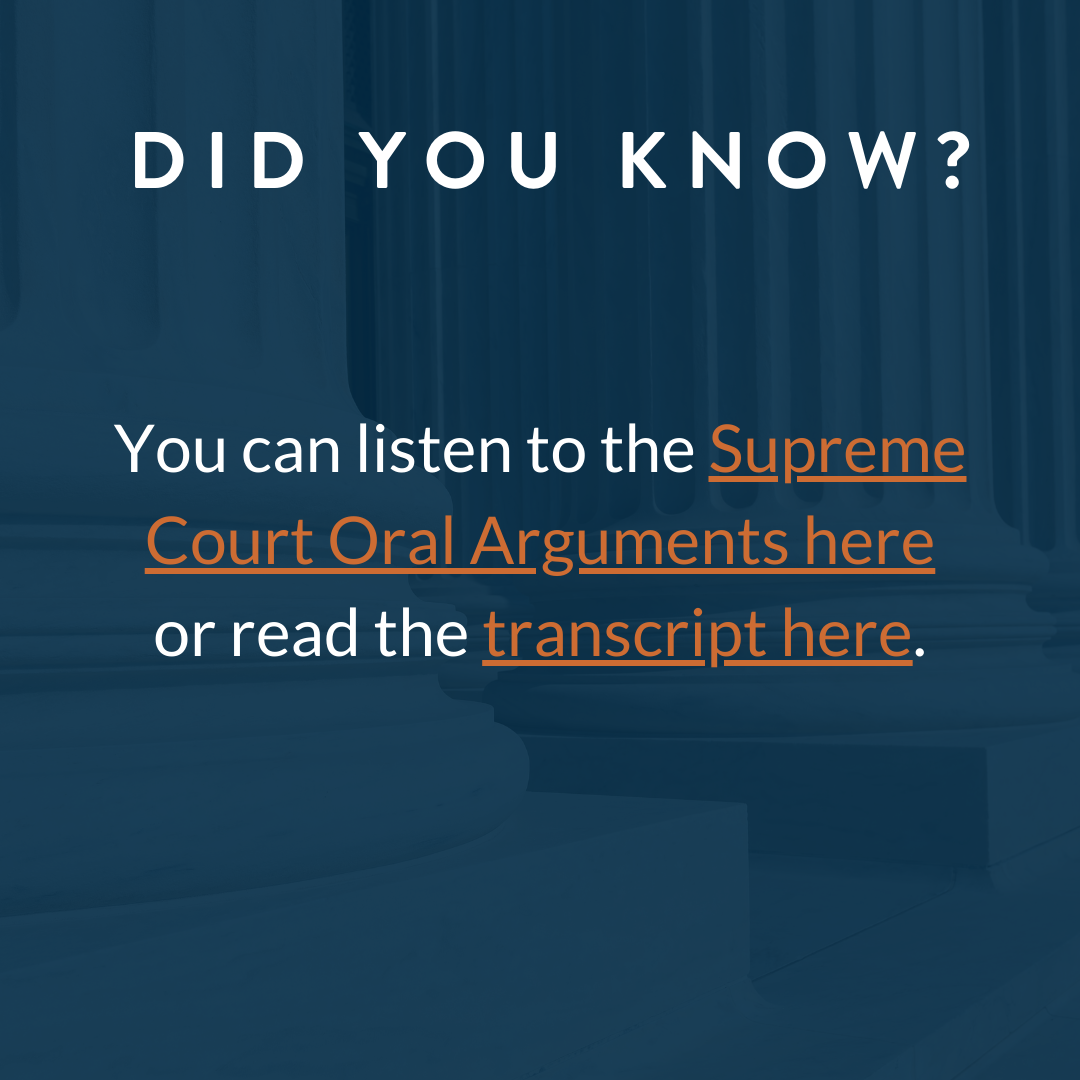 On February 8, 2024, the Supreme Court of the United States (SCOTUS) heard oral arguments in Trump v. Anderson, a critical case for the upcoming presidential election and for states’ rights. Former President Donald Trump appealed the decision of the Colorado Supreme Court, which held that Trump is disqualified to run in the Colorado primary elections because Section 3 of the 14th Amendment bars him after he engaged in insurrection. The legal questions presented by this case are new and have never before been confronted by SCOTUS. You can listen to the Supreme Court Oral Arguments here or read the transcript here.
On February 8, 2024, the Supreme Court of the United States (SCOTUS) heard oral arguments in Trump v. Anderson, a critical case for the upcoming presidential election and for states’ rights. Former President Donald Trump appealed the decision of the Colorado Supreme Court, which held that Trump is disqualified to run in the Colorado primary elections because Section 3 of the 14th Amendment bars him after he engaged in insurrection. The legal questions presented by this case are new and have never before been confronted by SCOTUS. You can listen to the Supreme Court Oral Arguments here or read the transcript here.
The Supreme Court’s decision will have massive implications for this year’s presidential elections; if the Supreme Court upholds the Colorado decision, other states will likely remove Trump from their ballots as well.
To gain a better understanding of how the U.S. Judicial Branch operates, visit The Policy Circle’s Judicial Branch Brief here. To dig deeper into primary sources, visit the Bill of Rights Institute.
What is the 14th Amendment?
At the center of this controversial case is the 14th Amendment which was ratified in 1868. In the post-Civil War Era, the 14th Amendment extended liberties in the Bill of Rights to formerly enslaved people and established the right to due process
At the heart of the Supreme Court case is Section 3, the Disqualification Clause, of the 14th Amendment:
“No person shall be a Senator or Representative in Congress, or elector of President and Vice-President, or hold any office, civil or military, under the United States, or under any State, who, having previously taken an oath, as a member of Congress, or as an officer of the United States, or as a member of any State legislature, or as an executive or judicial officer of any State, to support the Constitution of the United States, shall have engaged in insurrection or rebellion against the same, or given aid or comfort to the enemies thereof. But Congress may, by a vote of two-thirds of each House, remove such disability.”
The Supreme Court must determine if the insurrection clause applies to former President Trump, the extent of his involvement, and whether Congress must pass a law further defining disqualification under the 14th Amendment. During oral arguments, several justices expressed skepticism that states have the right to remove a presidential candidate from the ballot which would result in disenfranchising a significant number of voters. Justice Kavanaugh expressed concern about the consequences not only in this election cycle but in future elections where states would have inconsistent approaches and determine the outcomes of national elections.
There were minimal arguments or questions from the Justices about whether Trump’s behavior actually amounts to insurrection. Constitutional scholars surmise that a “safe” ruling would punt the issuance, keeping Trump on the ballot and holding that the 14th Amendment requires Congress to pass a new law before it can be used.
The challengers requested that the justices issue their decision by February 11 to finalize the Colorado ballots before the mailing of the primary ballots and prior to the March 5th Super Tuesday.